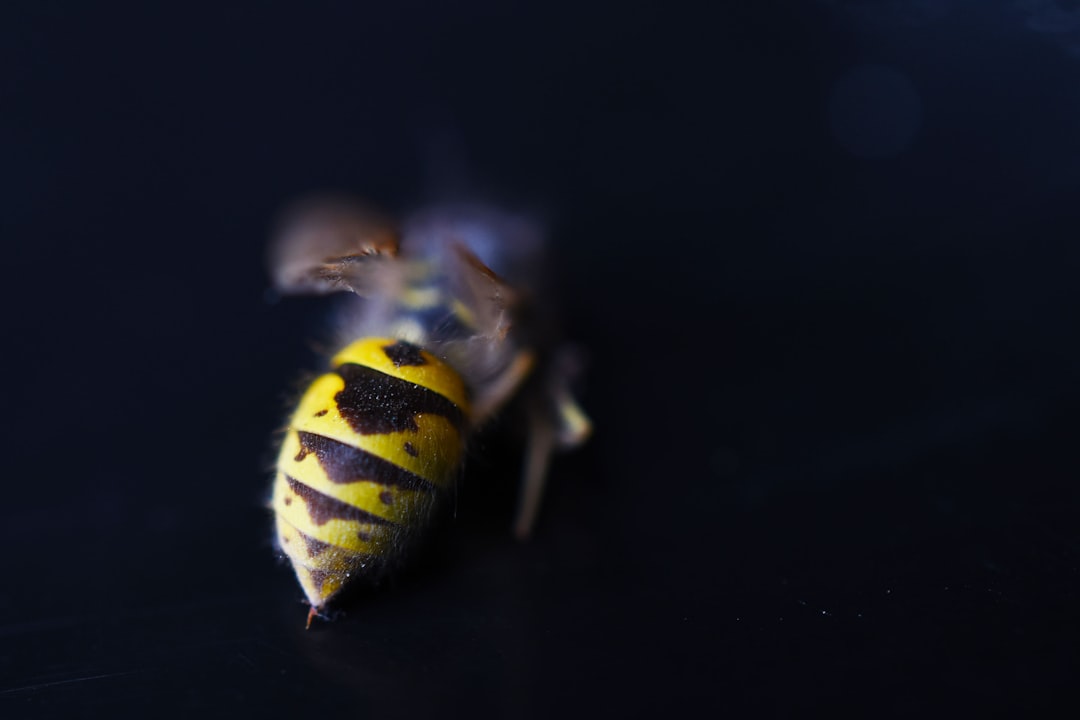The Bumble Bee Tuna scandal emerged as a significant event in the seafood industry, drawing attention to the ethical and legal standards that govern food production. Bumble Bee Foods, a well-known brand in the canned tuna market, found itself embroiled in controversy when allegations surfaced regarding its business practices. The scandal not only raised questions about the integrity of the company but also highlighted broader issues within the seafood industry, including sustainability, transparency, and consumer trust.
As details of the scandal unfolded, it became clear that the implications extended far beyond Bumble Bee itself, affecting consumers, regulatory bodies, and the entire seafood supply chain. The scandal began to take shape when investigations revealed that Bumble Bee had engaged in deceptive practices related to pricing and sourcing. This revelation sent shockwaves through the industry, as consumers and stakeholders alike grappled with the implications of such misconduct.
The fallout from these revelations would ultimately lead to legal actions, regulatory scrutiny, and a significant shift in public perception of the brand. As the story developed, it became evident that this was not merely a corporate misstep but a critical moment that could redefine standards within the seafood sector.
Key Takeaways
- Bumble Bee Tuna was involved in a major fraud scandal involving deceptive practices in seafood sourcing and labeling.
- The scandal had significant negative effects on consumer trust and raised public health concerns.
- Whistleblowers played a crucial role in uncovering the fraudulent activities.
- Legal actions and regulatory measures were taken against Bumble Bee Tuna, impacting its reputation.
- The incident highlighted the need for greater transparency and consumer advocacy in the seafood industry.
The Fraudulent Practices Uncovered
As investigations progressed, a series of fraudulent practices were uncovered that painted a troubling picture of Bumble Bee’s operations. One of the most alarming revelations was the company’s involvement in price-fixing schemes with competitors. This collusion not only manipulated market prices but also undermined fair competition within the industry.
Such practices are not only unethical but also illegal, leading to significant financial repercussions for consumers who were ultimately paying inflated prices for their tuna products. Additionally, Bumble Bee faced scrutiny over its sourcing practices. Reports indicated that the company had misrepresented the origins of its tuna, claiming to source from sustainable fisheries while actually relying on less reputable suppliers.
This deception not only violated consumer trust but also raised serious concerns about environmental sustainability and the impact on marine ecosystems. The combination of price-fixing and misleading sourcing practices painted a stark picture of a company willing to prioritize profit over ethical considerations, further intensifying public outrage.
Impact on Consumers and Public Health

The ramifications of the Bumble Bee Tuna scandal extended deeply into consumer health and safety. As allegations of fraudulent practices came to light, many consumers began to question the integrity of not just Bumble Bee but the entire canned seafood industry.
This erosion of trust had immediate consequences, as sales plummeted and consumers sought alternatives they believed to be more transparent and reliable. Moreover, the implications for public health were significant. Misleading sourcing practices could potentially expose consumers to unsafe or contaminated seafood products.
The lack of transparency regarding where and how tuna was sourced raised concerns about mercury levels and other harmful substances that could be present in improperly sourced fish. As consumers became more aware of these issues, there was a growing demand for stricter regulations and oversight within the seafood industry to ensure that public health was prioritized over corporate profits.
Bumble Bee Tuna’s Response to the Scandal
| Metric | Details |
|---|---|
| Response Time | 24 hours after scandal broke |
| Public Apology Issued | Yes, CEO statement released |
| Product Recall | Initiated recall of affected batches within 48 hours |
| Customer Support Calls | Increased by 300% during first week |
| Social Media Engagement | Over 10,000 responses addressing concerns |
| New Quality Control Measures | Implemented within 2 weeks post-scandal |
| Sales Impact | 15% decline in sales in the month following scandal |
| Regulatory Compliance | Passed all inspections after corrective actions |
In response to the mounting pressure from consumers and regulatory bodies, Bumble Bee Tuna took several steps to address the scandal and restore its reputation. Initially, the company issued public statements acknowledging the allegations and expressing a commitment to transparency and accountability. They emphasized their dedication to ethical business practices and pledged to cooperate fully with ongoing investigations.
However, many viewed these statements as insufficient given the severity of the allegations. Bumble Bee also initiated internal reviews and audits to assess their business practices and identify areas for improvement. This included reevaluating their supply chain and implementing new measures to ensure compliance with ethical sourcing standards.
While these efforts were a step in the right direction, they were met with skepticism from consumers who felt that actions spoke louder than words. The company faced an uphill battle in regaining consumer trust, as many remained wary of their commitment to change.
Legal and Regulatory Ramifications
The legal ramifications of the Bumble Bee Tuna scandal were extensive and far-reaching. Following the revelations of price-fixing and fraudulent practices, federal authorities launched investigations that culminated in criminal charges against several executives within the company. These legal actions underscored the seriousness of the allegations and sent a clear message about the consequences of corporate misconduct in the food industry.
In addition to criminal charges, Bumble Bee faced civil lawsuits from consumers seeking restitution for overcharges resulting from price-fixing schemes. Regulatory bodies also began to scrutinize not only Bumble Bee but other companies within the seafood industry, leading to calls for stricter regulations and oversight. The scandal served as a wake-up call for regulators, prompting discussions about how to better protect consumers and ensure ethical practices within the seafood supply chain.
The Role of Whistleblowers in Exposing the Fraud

Whistleblowers played a crucial role in bringing the fraudulent practices at Bumble Bee Tuna to light. Individuals within the company who were aware of unethical behavior stepped forward to provide information to investigators, shedding light on the inner workings of the organization. Their courage in speaking out was instrumental in uncovering the extent of the misconduct and holding those responsible accountable.
The actions of these whistleblowers highlighted the importance of fostering a corporate culture that encourages transparency and ethical behavior. Their willingness to risk their careers for the sake of integrity served as a reminder that change often begins from within an organization. As more individuals come forward with information about wrongdoing, it becomes increasingly difficult for companies to engage in deceptive practices without facing consequences.
Repercussions for Bumble Bee Tuna’s Reputation
The fallout from the scandal had profound repercussions for Bumble Bee Tuna’s reputation. Once regarded as a trusted brand in the canned seafood market, Bumble Bee found itself facing a significant decline in consumer confidence. Sales dropped sharply as customers turned away from a brand they once relied on, seeking alternatives that they perceived as more trustworthy.
Rebuilding a tarnished reputation is no easy task, especially in an industry where consumer trust is paramount. Bumble Bee faced an uphill battle as it sought to regain its standing in the market. Efforts to rebrand and reposition itself as a leader in ethical sourcing and sustainability were met with skepticism from consumers who remained wary of past transgressions.
The challenge ahead was not just about restoring sales but also about rebuilding trust—a process that would require consistent transparency and accountability over time.
Lessons Learned for the Seafood Industry
The Bumble Bee Tuna scandal served as a critical lesson for the entire seafood industry regarding the importance of ethical practices and transparency. It underscored the need for companies to prioritize integrity over profit margins, as deceptive practices can lead to severe consequences not only for individual brands but for entire sectors. The scandal prompted discussions about establishing more robust regulations and standards within the industry to prevent similar incidents from occurring in the future.
Moreover, it highlighted the necessity for companies to invest in sustainable sourcing practices that prioritize environmental stewardship and consumer health. As consumers become increasingly aware of issues related to sustainability and ethical sourcing, companies must adapt their practices accordingly or risk losing market share to competitors who prioritize these values. The lessons learned from this scandal could pave the way for a more responsible seafood industry moving forward.
Consumer Advocacy and Awareness
In light of the Bumble Bee Tuna scandal, consumer advocacy groups have become more vocal about holding companies accountable for their practices. The incident sparked increased awareness among consumers regarding food sourcing and labeling, leading many to demand greater transparency from brands they support. Advocacy organizations have taken up the mantle of educating consumers about their rights and encouraging them to ask questions about where their food comes from.
This heightened awareness has led to a shift in consumer behavior, with many individuals opting for brands that prioritize ethical sourcing and sustainability over those with questionable practices. As consumers become more informed about issues related to food production, they are increasingly willing to support companies that align with their values. This shift has created an environment where accountability is paramount, pushing companies across industries—including seafood—to adopt more responsible practices.
The Future of Bumble Bee Tuna
Looking ahead, Bumble Bee Tuna faces a challenging road as it seeks to navigate the aftermath of its scandal. The company must work diligently to rebuild its reputation while demonstrating a genuine commitment to ethical practices and transparency. This will require not only changes at the corporate level but also a cultural shift within the organization that prioritizes integrity over profit.
To regain consumer trust, Bumble Bee will need to implement robust measures that ensure compliance with ethical sourcing standards and engage in open communication with stakeholders about its practices. Additionally, investing in sustainability initiatives could help position Bumble Bee as a leader in responsible seafood production—a necessary step if it hopes to recover from its tarnished image.
Moving Forward from the Scandal
The Bumble Bee Tuna scandal serves as a cautionary tale for both consumers and companies within the seafood industry. It highlights the critical importance of ethical practices, transparency, and accountability in maintaining consumer trust. As stakeholders reflect on this incident, it becomes clear that moving forward requires a collective commitment to integrity—one that prioritizes not just profits but also public health and environmental sustainability.
For Bumble Bee Tuna, recovery will take time and effort; however, it is possible if they embrace change wholeheartedly. By learning from past mistakes and actively working towards rebuilding trust with consumers, they can emerge stronger than before—setting an example for others in the industry along the way. Ultimately, this scandal has opened up vital conversations about ethics in food production that will shape the future landscape of not just canned tuna but all seafood products moving forward.
The Bumble Bee Tuna scandal, which involved allegations of price-fixing and collusion among major tuna companies, has raised significant concerns about corporate ethics and consumer trust in the seafood industry. For a deeper understanding of the implications of this scandal and its impact on the market, you can read more in this related article: Bumble Bee Tuna Scandal Details.
WATCH THIS! The $10 Billion Lie: Why Your “Dolphin-Safe” Tuna Isn’t Safe
FAQs
What is the Bumble Bee Tuna scandal?
The Bumble Bee Tuna scandal refers to a controversy involving allegations of price-fixing and collusion among major tuna companies, including Bumble Bee Foods. The scandal involved accusations that these companies conspired to artificially inflate the prices of canned tuna products in the United States.
When did the Bumble Bee Tuna scandal come to light?
The scandal became public in 2015 when the U.S. Department of Justice announced an investigation into price-fixing in the canned tuna industry. Bumble Bee Foods later pleaded guilty to participating in a price-fixing conspiracy.
Which companies were involved in the scandal?
The primary companies implicated were Bumble Bee Foods, StarKist Co., and Chicken of the Sea. These companies were accused of coordinating prices and market shares to control the canned tuna market.
What were the consequences for Bumble Bee Foods?
Bumble Bee Foods pleaded guilty to price-fixing charges and agreed to pay a $25 million criminal fine. The scandal also led to increased scrutiny of the company and changes in its management and business practices.
How did the scandal affect consumers?
Consumers were likely affected by higher prices for canned tuna products due to the alleged price-fixing. The scandal highlighted the impact of anti-competitive practices on everyday grocery prices.
What legal actions were taken against the companies involved?
The U.S. Department of Justice filed criminal charges against Bumble Bee Foods and other companies. Bumble Bee pleaded guilty, and other companies faced lawsuits and investigations. Some executives were also charged with conspiracy.
Has the canned tuna industry changed since the scandal?
Following the scandal, there has been increased regulatory oversight and calls for greater transparency in the canned tuna industry. Companies have implemented compliance programs to prevent future anti-competitive behavior.
Where can I find more information about the Bumble Bee Tuna scandal?
More information can be found through official U.S. Department of Justice press releases, news articles from reputable sources, and legal documents related to the case.
